Published: january 10, 2009; Intelligence and Terrorism Information Center.
Please read also Iran blames foreign countries for internal political unrest.
In the wake of the Ashura riots, Mir Hossein Mousavi proposes a plan to solve the crisis; the conservatives’ approach is still as aggressive and non-compromising as ever.
Several days after the Ashura riots which broke out the week before last, the reformist opposition leader Mir Hossein Mousavi published a first memorandum of opinion detailing five conditions necessary in order to solve the current political crisis in Iran:
- Government recognition of its responsibility for the people, the Majles, and the judiciary, as well as its direct responsibility for the current crisis.
- Formulation of a new election law that would ensure transparent, free, and fair elections without any intervention from the authorities.
- Release of political prisoners and restoration of their dignity.
- Guaranteeing the freedom of press, renewing the license of all the newspapers that have been shut down, and lifting the restrictions on filtered websites.
- Guaranteeing the civilians’ freedom of assembly and freedom of association.
In his memorandum of opinion, Mousavi says that arresting or executing him or opposition leader Mehdi Karoubi will do nothing to alleviate the situation, and that he was not concerned about becoming a martyr in the struggle for the religious and national rights of the Iranian people. “We are not American or British”, Mousavi added, “and we have no hope for assistance from them”. Mousavi strongly condemned the suppression of the demonstrators by the authorities during the Ashura riots, saying that the continuing suppression of the opposition by means of arrests, violence, threats, silencing dissent, and shutting down newspapers and media will not help the government to end the current crisis (Rah-e Sabz, January 1).
The memorandum of opinion published by Mousavi sparked heated reactions among Iran’s politicians and media. One of the issues was whether the memorandum of opinion could be seen as Mousavi’s recognition of the legitimacy of Ahmadinejad’s government, seeing as it was the first time since the presidential elections that Mousavi did not bring up an explicit demand to annul the elections or question the government’s legitimacy. While those affiliated with the reformist bloc (and even the pragmatic conservative bloc) claimed that the memorandum of opinion reflected Mousavi’s good will and should be seen as an important first step towards a solution to the political crisis, pro-government elements rejected Mousavi’s proposal to resolve the crisis.
Expediency Discernment Council secretary and former Revolutionary Guards chief Mohsen Reza’i, affiliated with the pragmatic conservative bloc, reacted positively to the memorandum of opinion published by Mousavi. In a letter he sent to Supreme Leader Ayatollah Ali Khamenei the weekend before last, Reza’i, who was one of the candidates in the last presidential election, said that the memorandum of opinion was a departure from Mousavi’s previous stance of rejecting the legitimacy of Ahmadinejad’s government, and that it may even mark the beginning of a process that would eventually result in a solution to the political crisis. Reza’i called on Khamenei to issue a message on his behalf to kick-start a new process for achieving unity and brotherhood in Iranian society, increase cooperation between the various political factions, and curb the activity of the extremist elements in the society (Tabnak, January 1).
In contrast, the conservative daily Keyhan issued a scathing reaction to Mousavi’s memorandum of opinion, accusing him of instigating and supporting those responsible for disrupting public order and offending the sanctity of Ashura. Instead of addressing the millions of Iranians who took part in the traditional mourning processions, Keyhan says, Mousavi preferred to address several dozens of incited delinquents who disrupted public order during Ashura. Keyhan further claimed that Mousavi did not have the courage to explain why he had the support of President Obama and of the opposition organization Mojahedin-e Khalq (Keyhan, January 2).
Conservative Majles member Ruhollah Hosseinian also had a dismissive reaction to the memorandum of opinion issued by Mousavi, claiming it reflected no departure from the opposition leader’s stance. In an interview granted to Fars news agency, Hosseinian also strongly condemned Mohsen Reza’i’s letter to the Supreme Leader, saying that bringing up a demand for national unity with the “leaders of incitement” was tantamount to betraying the Iranian people. Reza’i’s letter, the pro-government Majles member said, will encourage the enemies of Iran and the opposition leaders to carry on with their crimes (Fars, January 2).
Ali Akbar Velayati, the Supreme Leader’s advisor on international affairs, also rejected the possibility of unity with those responsible for order violations during the Ashura riots. In a conversation with Fars news agency, Velayati said that while the nation’s unity was vital, unity with those who tarnished the sanctity of Islam during Ashura was meaningless. Unity is only possible within the context of the Islamic regime in Iran, not with those who do not recognize the principle of the rule of the religious jurisprudent, he said (Fars, January 3).
Meanwhile, last week pro-government conservative circles continued with their aggressive and non-compromising approach to the reformist opposition. The weekend before last, Guardian Council chairman and Friday prayer leader Ayatollah Ahmad Jannati strongly condemned those responsible for public order violations during Ashura, referring to the demonstrators as “corrupt on Earth” (Mofsid fil-Arz), a charge which in Islam carries the death penalty. Jannati accused the demonstrators of receiving financial support from Western countries, claiming that they must die from sorrow and be ashamed of the support they were getting from the leaders of the US, Israel, and Britain. He added that the slogans carried by the demonstrators were proof that they sought to offend Islam and undermine the stability of the regime, and called on the judiciary and the security forces to treat the demonstrators with an iron fist, just like in the beginning of the Islamic revolution. He said that public order violators should be arrested, put to trial, and kept in detention so that they cannot carry on with their incitement. Jannati also addressed the calls made by various political elements for national unity, saying that unity could not achieved with those involved in the riots (various news agencies, January 1).
Last Friday, Majles speaker Ali Larijani also condemned the Ashura rioters, saying they should be severely punished. During a visit to the city of Mashhad, Larijani said that the people expected that those who offended Imam Hossein and the sanctity of Islam would be severely punished. He claimed that several politicians had sparked the fire of political confrontation following the presidential elections, and that it encouraged the enemies of Iran to undermine the values of Islam and the principle of the rule of the religious jurisprudent. The Iranian people, however, have once again proven their loyalty to the rule of the religious jurisprudent. Politicians must distance themselves from those who seek to cause chaos in society, Larijani said (IRNA, January 1).
Mazzeltov,
Crethi Plethi



 RSS
RSS

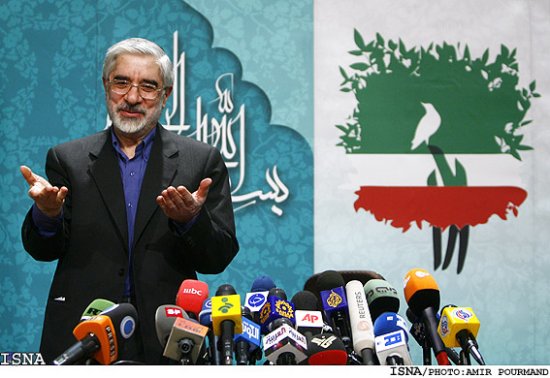
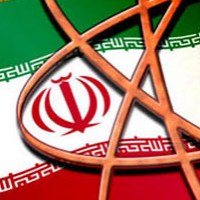

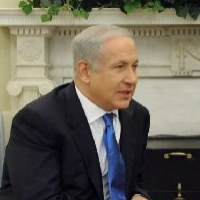
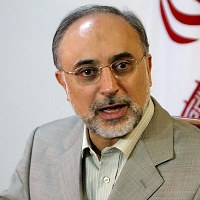
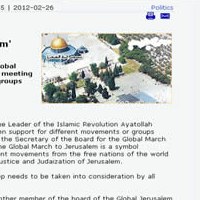




[…] the crisis; the conservatives’ approach is still as aggressive and non-compromising as ever. Read More »google_ad_client = "pub-3667441628576694"; google_alternate_color = "FFFFFF"; google_ad_width = 728; […]